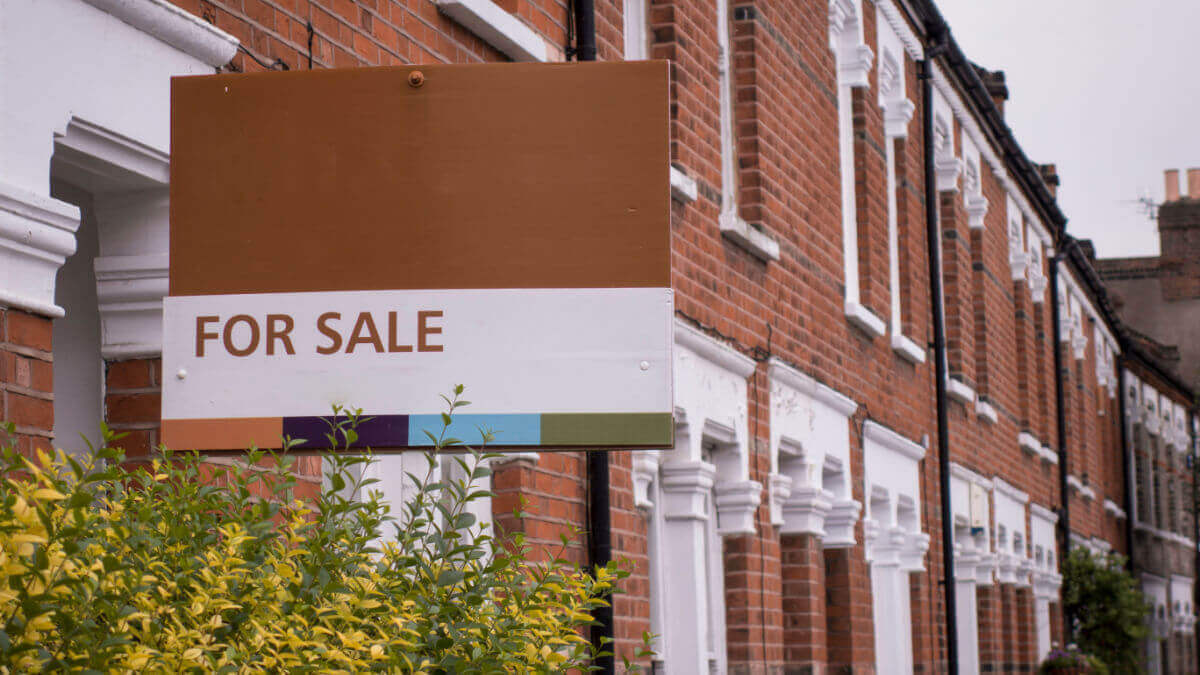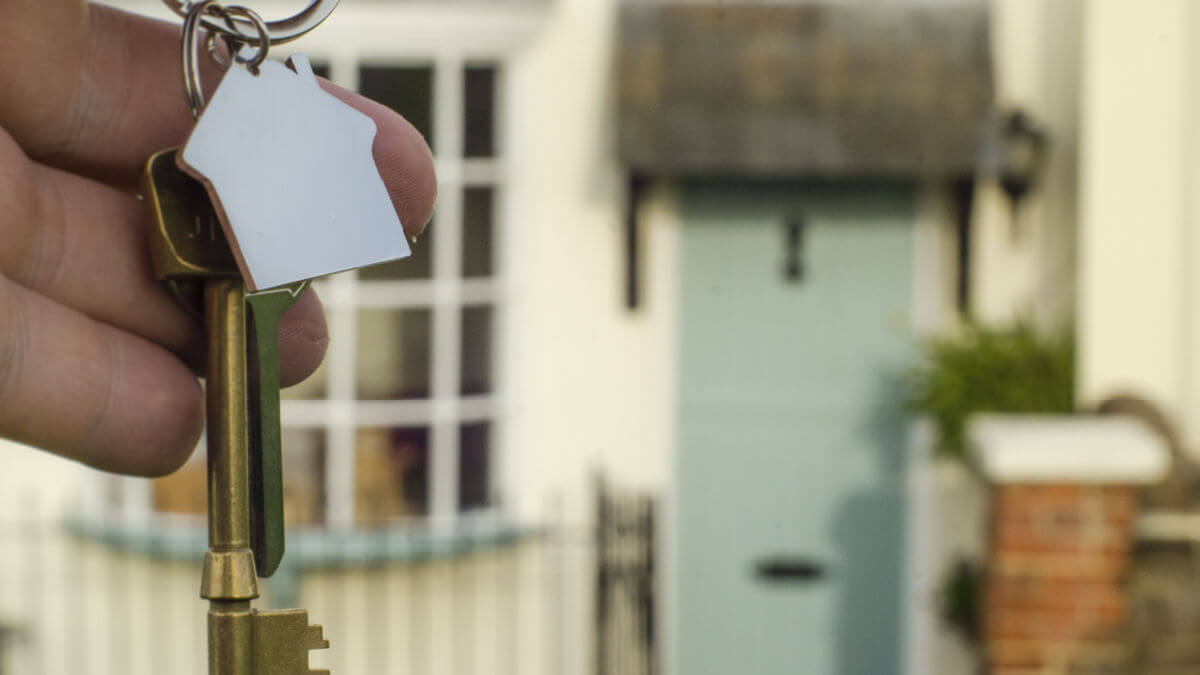Is there an ISA for non UK citizens living in the UK?
Everything you need to know about ISAs for non-UK citizens in a handy guide, including eligibility and how to open one.

Thinking of moving to the UK and buying a home, or investing in the UK property market from abroad? Read on, as we’ve put together an essential guide for foreigners buying property in the UK.
We’ll cover everything you need to know about the property buying process, including finding a house or flat and getting a mortgage. This includes any restrictions on buying property in the UK after Brexit, some helpful info on UK property prices, and a run-through of fees and taxes you need to know about.
We’ll also show you a convenient and low-cost way to cover any payments you need to send to the UK from overseas.
Open a Wise account and you can send money worldwide, in 40+ currencies, in just a few clicks, for low fees* and mid-market exchange rates. This is ideal for managing your money across borders, and when living in the UK too.
The UK property market has experienced surging property prices in recent years, partly driven by high demand and limited supply.
However, there are now signs that UK house prices are starting to fall month by month, affected by rises in the cost of living in the UK. Figures from the Land Registry show that the average UK property price fell by 2.1% in 2023 - to £285,000.¹
Overall though, it remains a highly competitive market for buyers, although the situation is starting to improve.
There aren’t any legal restrictions on foreigners buying property in the UK.² This means almost anyone can buy a property there, regardless of nationality.
You don’t need a visa to invest in UK property either, although of course you will need one if you’re buying a home with the intention of living in it.
It’s worth bearing in mind that foreign buyers may be subject to more rigorous identity checks, so you’ll need to make sure you have all the required documentation ready. This may include ID and proof of address.
Now that the UK has left the European Union, how does this affect foreigners interested in buying UK property?
The good news is that very little has changed in this regard since Brexit. Both EU and non-EU buyers can still purchase property in the UK in much the same way as UK citizens.³
There is currently no option to get permanent residency status in the UK by buying or investing in property. If you want to live in the UK, you’ll need to find and apply for the appropriate visa and residence permit.
For example, if you’re planning on moving to the UK from India to work in an eligible skilled job, you’ll need to apply for the Skilled Worker visa. Only once you’ve been in the UK for 5 years on this visa will you be eligible to apply for citizenship and permanent residency.⁴
| 📚 Read more: How to open a bank account in the United Kingdom (UK)? |
|---|
Now, let’s take a look at how much property costs in the UK. As of January 2023, the average house price was £290,000.⁵ But of course, property prices can vary considerably between regions, and depending on the property type.
According to the UK’s House Price Index for January 2023, the average cost of a detached property was £458,066 while the average flat sold for £227,951.⁵
Here are the average UK house prices in different regions:
| UK region | Average property price⁵ |
|---|---|
| London | £533,986 |
| South East | £398,368 |
| South West | £329,691 |
| West Midlands | £256,694 |
| East Midlands | £251,177 |
| North West | £214,431 |
| North East | £163,371 |
| Yorkshire and the Humber | £207,635 |
| East of England | £358,114 |
| Wales | £216,871 |
| Scotland | £185,016 |
| Northern Ireland | £175,234 |
And, if you’re arranging your property purchase from abroad, you’ll need a safe, reliable and preferably low-cost way to send over fees, deposits and other payments.
The Wise account could be a great solution, with transparent, low fees*, and multiple layers of security, so you can safely transfer large amounts both in the UK and overseas.
Learn more about sending large amounts with Wise 💰
The North East of England is the cheapest place to buy property, with the average house price around £163,371.⁵ Other affordable regions include Yorkshire, the North West of England, and Wales.
As you might expect, London and the South are by far the most expensive places to buy property in the UK.

Ready to start your property hunt? There are a few routes to try, from tapping into the expertise of local estate agents to scouring online property listings websites.
If you’re still abroad and looking for a UK property to buy, you could use an estate agent to help you find the perfect home or investment. If you know where you want to focus your search, you can contact local estate agents and they’ll help you find a property. However, bear in mind that some estate agents may charge a fee for some services.
One of the easiest ways to find a property in the UK is online. There are a number of dedicated property websites you can use, such as:
On most of these websites, you’ll be able to enter your exact search criteria. For example, what type of property, how many bedrooms, whether or not you want off-road parking or a garden. There may also be the option to send a message to the owner or estate agent to arrange a viewing or find out more information.
There will always be pitfalls to watch out for when buying property anywhere, especially if you’re buying from abroad. You’ll need to steer clear of scams and fraud, by thoroughly checking the credentials of sellers and agents - particularly before handing over any money.
You should also make sure to thoroughly assess the property before purchasing. You may want to save money by not commissioning a home survey. However, this could lead to the discovery of hidden repair or maintenance issues later on, and these can be expensive to fix.
Some buyers also face problems getting a mortgage, due to buying property of non-traditional construction or another issue such as subsidence.
Lastly, there’s the risk of encountering obstacles during the purchasing process itself. There’s a chance you may get ‘gazumped’ by another buyer after you’ve had an offer accepted, or the sale collapsing because of problems further up the ‘chain’.
The ‘chain’ refers to related property purchases which all affect each other. For example, the property your seller is buying, and the property their seller is buying and so on. This isn’t an issue of course if the property you’re buying is empty.
To avoid some of the pitfalls above and ensure you’re getting good value for money, it’s crucial to choose your new property very carefully. You’ll need to:
The best way to check the condition of the property is to commission a home survey. This should be carried out by a trained professional, such as the Royal Institution of Chartered Surveyors (RICS). It involves a detailed inspection of the property, with a summary of any defects, minor maintenance and major works required.
There are a few different kinds of home survey, each offering a greater degree of detail (and with a higher cost):⁶

Let’s take a look at the steps involved in buying a property in the UK as a foreigner, starting at the very beginning:
You can get a mortgage from a UK bank as a foreign citizen, but there are a few things to bear in mind.
If you don’t live in the UK (or haven’t lived in the UK for at least two years), you might face some restrictions. For example, you may have fewer mortgage products to choose from, have to pay a larger deposit or face higher interest rates.
So, it’s a good idea to start your mortgage research early, speaking to banks and lenders to find out your options. You can also use a specialist mortgage broker to help you find and apply for a mortgage, although this is likely to come with an additional fee.
There are a number of fees and taxes you need to know about as a foreigner buying property in the UK. Many of these are applicable to all UK property purchases, while some are only for non-citizens purchasing property in the country.
Let’s take a look, so you can factor these extra costs into your total budget:
| Fee/tax type | Cost⁷ | What’s it for? |
|---|---|---|
| Conveyancing fees | £1,100 to £1,800 | Legal fees, including local searches |
| Home survey fee | £250 to £600 | A survey and report assessing the condition of the property |
| Mortgage fees | Booking fee - £99 to £250 Arrangement fee - up to £2,000 Valuation fee - £150 or more | Fees charged by the lender for providing the mortgage |
Another important cost to know about is Stamp Duty Land Tax (SDLT). This is payable on all properties in England or Northern Ireland costing over £250,000. If you’re a first-time buyer, you’ll only pay Stamp Duty on properties costing over £425,000.⁷
Stamp Duty has several rate bands, and is calculated based on the part of the property purchase price that falls within each band. You can use this Stamp Duty calculator to work out how much you’ll pay.
As a foreign buyer, you may also have to pay the Stamp Duty Land Tax (SDLT) surcharge. This adds 2% onto the usual rates.⁸
After reading this guide, you should be in a better informed position to buy your dream home or investment property in the UK.
We’ve run through the property buying process in the UK, including where to start searching for property, and the fees, taxes and other costs involved.
It could be worth opening a UK bank account to make your property purchase easier.
But don’t forget that there’s also the Wise account for making secure, low-cost payments between countries. You can send and hold money in 40+ currencies, and spend in 150+ countries around the world using the Wise card.
This could be very useful for covering your solicitor fees, deposit and any other initial payments, before you arrive in the UK or get your financial arrangements sorted.
Sources used:
Sources last checked on date: 09-Feb-2024
*Please see terms of use and product availability for your region or visit Wise fees and pricing for the most up to date pricing and fee information.
This publication is provided for general information purposes and does not constitute legal, tax or other professional advice from Wise Payments Limited or its subsidiaries and its affiliates, and it is not intended as a substitute for obtaining advice from a financial advisor or any other professional.
We make no representations, warranties or guarantees, whether expressed or implied, that the content in the publication is accurate, complete or up to date.

Everything you need to know about ISAs for non-UK citizens in a handy guide, including eligibility and how to open one.

What is the best account for inheritance in the UK? Find out in our handy guide where we compare interest rates, features and benefits of popular accounts.

Read our guide to receiving inheritance from Canada as a UK resident, covering everything you need to know.

Read our guide to receiving inheritance from the USA as a UK resident, covering everything you need to know.

Discover what citizenship by descent means in the UK and see if you are eligible to become a UK citizen via your parents or grandparents in our guide.

Thinking of applying for a UK passport? Read our guide on the UK citizenship by investment, including the requirements, costs and benefits.